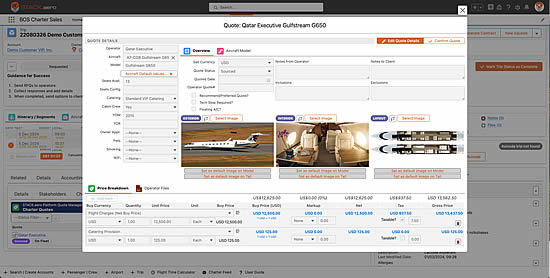![]()
The Human Hack: Why people still outperform AI in business aviation sales
The potential of Artificial Intelligence (AI) is the hottest topic across global industries. You can’t open a newspaper, attend a conference, or scroll through LinkedIn without reading how AI is about to replace a significant part of the workforce.
AI is great; it can perform and improve many tasks, and the aviation industry has certainly embraced AI in every area, from improving operational efficiency and safety to supporting financial decision-making.
Already widely used for predictive maintenance, route optimisation, air traffic management, fuel optimisation, and cockpit assistance, among others. AI-piloted aircraft are also currently under development, although humans need to buy into a pilotless aircraft, and that’s where things begin to get a little more sensitive.

People still outperform AI in business aviation sales.
AI simply can’t hack it. This is because private aviation isn’t just about the most efficient way to get from A to B. It’s about building trust, confidence, anticipating needs, and developing authentic relationships. It relies on the sort of human nuance that algorithms are still a long way from replicating. There are still areas of soft skills that triumph over technical tools.
And therein lies the paradox: correctly applied technology is uniquely capable of upgrading the passenger inflight experience, providing pinpoint personalisation, and supporting sales. It is essential, not as a replacement for people, but as a silent partner that informs and equips sales teams, allowing them to focus on their irreplaceably human skills: listening, empathising, and reading between the lines. The barely raised eyebrow, the hardly audible hmm, the crickets response….the body language.
CRM tools are fantastic for managing all that data. It creates a unique pool of client insight, giving sales teams access to detailed customer profiles. Every piece of feedback or conversation snippet can be retained, ensuring no information is lost, whether buried in an email thread, jotted on a Post-it note, or held in a colleague’s memory. Here, AI can add value and supremely better manage the myriad information.
If a CRM incorporated AI, it would be generous to a fault. It could give sales teams time back that would be otherwise lost on crunching data, remembering where that Post-it note got stuck, or figuring out which Excel sheet had the passenger manifest on. Meanwhile, the charter broker could spend time ensuring that the operator has all the necessary resources to provide an exceptional trip, communicate with the client, and ensure a seamless experience. While also managing other trips that would have been impossible without the CRM.
Quoting Module screen | click on the image for larger format.
The future looks positively brilliant with AI, and we are currently exploring the addition of features that will leverage it in the future. Initially, while AI can automate data collection, such as email parsing, in the first phases, we’d need human verification to confirm validity. This is vital in our industry, where we are talking about sensitive and critical data. A single wrong digit in a passport number can be hugely problematic, the wrong airport selected for a trip can be catastrophic for a broker, and an incorrect allergy note could prove fatal.
However, for now, the analytical capabilities of a dedicated aviation CRM, like our BOS system, create opportunities for proactive sales efforts. An individual may have a noted love for rock music in his inflight preferences. The broker could recommend flying to a specific destination for an exclusive music event that the customer was unaware of. But the human element takes the connection further.
Consider a client who often books flights to Milan at short notice. An AI system might flag “Client = Milan = Fashion Week = Suggest flight options.” However, a smart broker with a detailed customer profile recognises that the same client mentioned their daughter is starting university in Florence. With the right data surfaced in the CRM, the broker can turn a routine transaction into a personal touch: “I saw you’ll be in Italy that week. Would you like me to look at flights for your daughter, too?” That isn’t automation. That’s human connection. And it builds loyalty far faster than any algorithmic recommendation ever could.
So, while the tech world races to replace personal interaction with algorithms and bots, business aviation can take pride in blending technical efficiency with personal insight. In private aviation, the winning formula isn’t artificial intelligence: it’s augmented humanity.






